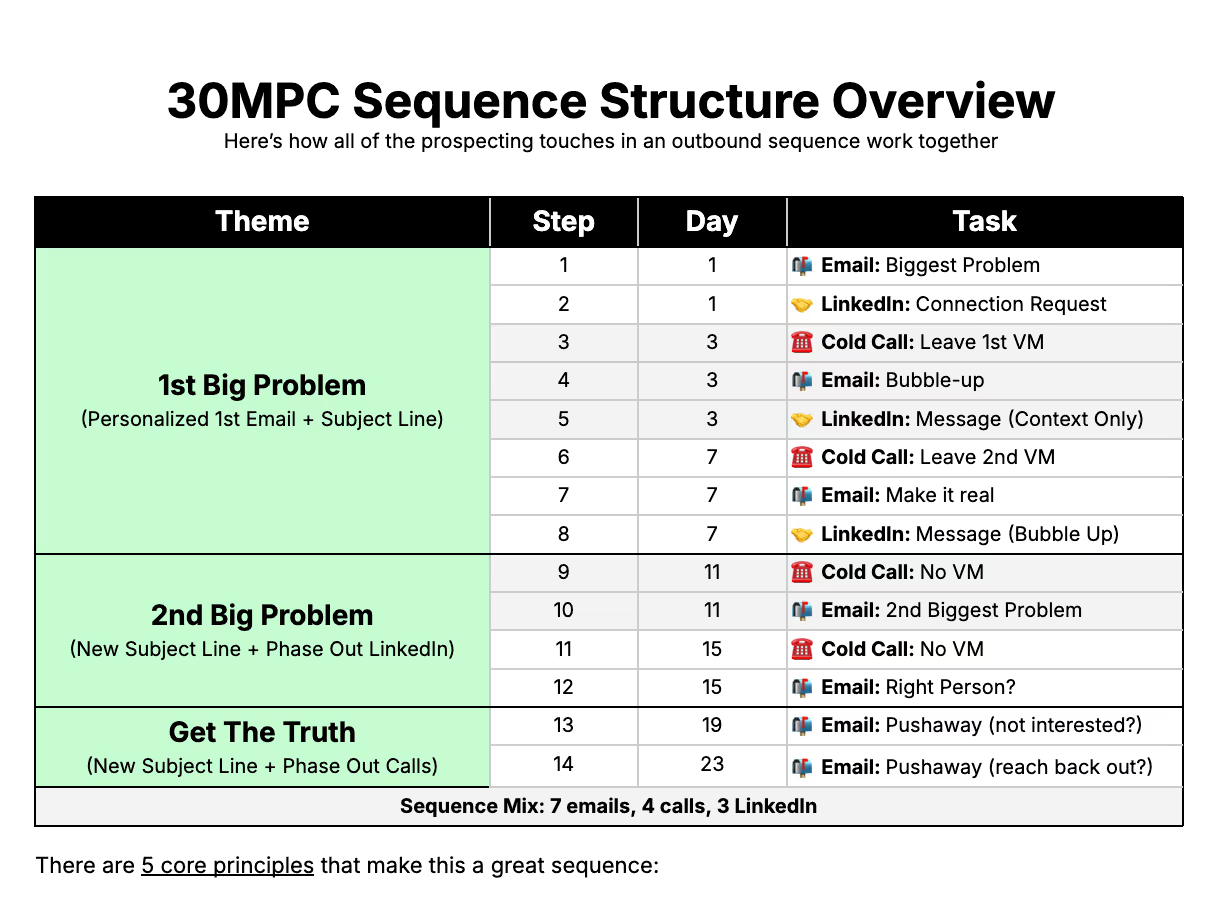You do all this work to get your prospect talking during discovery.
You recap the problems they want to solve.
And now it's time to demo...
9/10 times, the demo is a one-way monologue with the occasional "any questions?"
Most software demos absolutely suck -- they're longwinded feature monologues that make your prospect completely tune out and start multitasking on Slack.
Discovery doesn't end at the demo. The demo allows you to deepen your discovery.
That said, asking good questions during a demo is easier said than done. You can't just ask "any questions?" or ask "how do you do this today?"
So today I'm breaking down 3 types of questions I ask in every software demo:
- Past Questions
- Present Questions
- Future Questions
Let's roll.
Use Past Questions to Validate Problems
Past questions allow you to validate the pain that they shared during discovery.
For this reason, I see them as the most important demo question to master because they connect your discovery to your demo.
There are three steps to constructing a past question:
- Recap the problem (ie: the past state)
- Demo the solution (ie: the future state)
- Ask how it compares
An example from when I sold compensation software at Pave might sound like this:
[RECAP PROBLEM] You mentioned employees were leaving because they didn't understand the value of their equity.
[DEMO SOLUTION] Inside of Pave, they're able to see what their equity is worth today, but also in a 2x, 5x, or 10x scenario.
[VALIDATE] How does this compare to what they're seeing today?
I use past questions for nearly every major demo riff. When you recap the problem, you orient your prospect around the problem they want to solve, which allows them to picture the solution in their "day in the life."
Use Present Questions to Deepen Discovery
Present questions help you to understand more about how they're doing something today so you know you're demoing the right thing.
They sound like this:
[EX 1] Before I go through the ARR reporting, how do you reconcile ARR today?
[EX 2] Next up we've got the total rewards portal. Before we dive in, how do you communicate equity to your employees today?
[EX 3] Before we let the bot screen all those resumes, what are some of the top criteria you look for when you're hiring software engineers?
Sellers often ask *too many* Present Questions. Notice that these don't actually reveal or validate any problems -- so only use them to get the minimum information you need to give an accurate demo, otherwise you'll feel like you're going through a doctor's checklist.
(How do you do this? How do you do this? How do you do... this?)
Use Future Questions to Make It Real
Future questions make your solution feel "real" by forcing your prospect to think about how they'd roll it out at their company.
They sound like this:
[EX 1] Let's just pretend you were rolling out a pipeline dashboard today, how would you want to configure it for your VP of Sales?
[EX 2] If we were rolling out total rewards statements for your employees today, what would be the biggest benefits you'd want to highlight at the top?
[EX 3] Let's say you were planning a content launch with 30MPC, what would be something that you'd really want to make a splash about?
I often like to use them toward the back end of the demo after they admit that they like the solution. So lead with more Past Questions upfront to get problem-solution-agreement, then finish with Future Questions to make it real.
***
That's a wrap folks!
If you liked this one, I use the exact same 4-slide deck for every big team demo to recap the problems and do more discovery before I jump into the product.

















